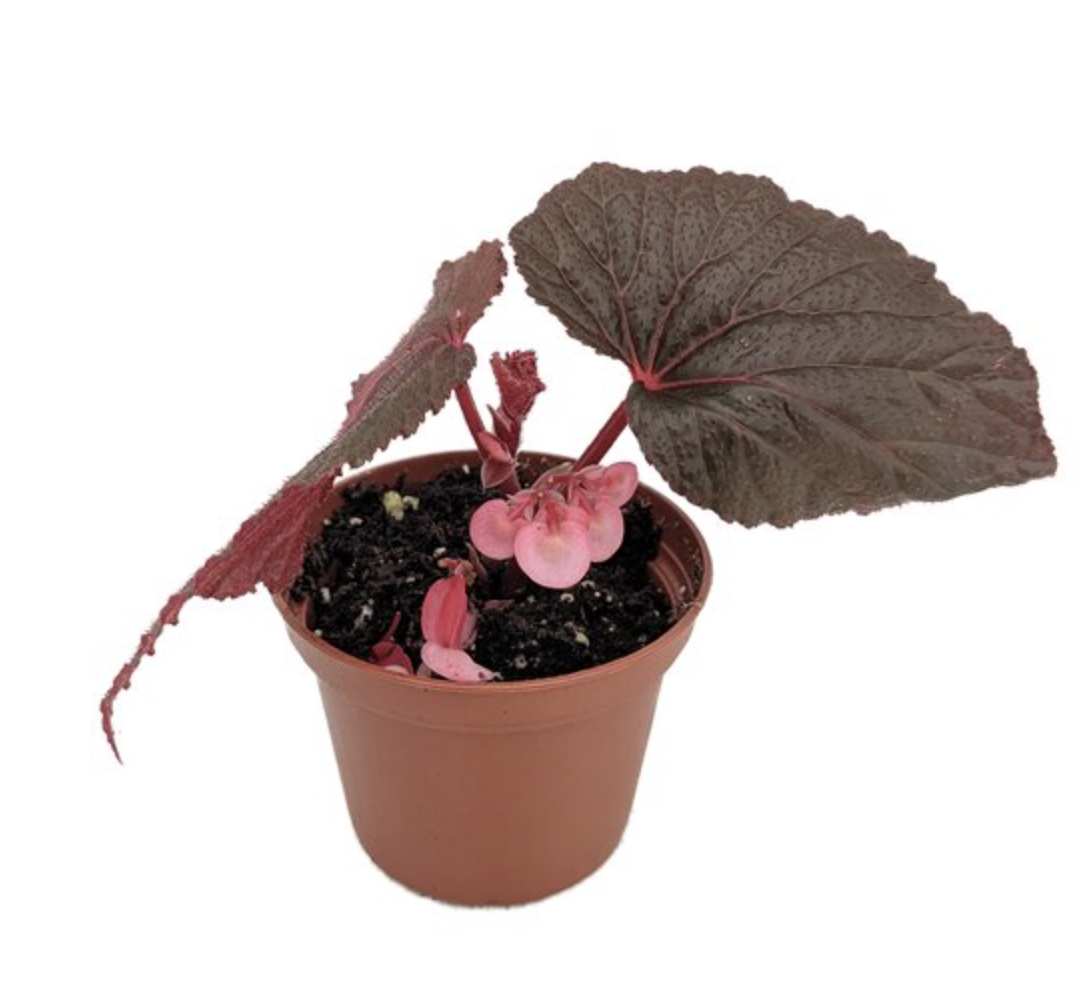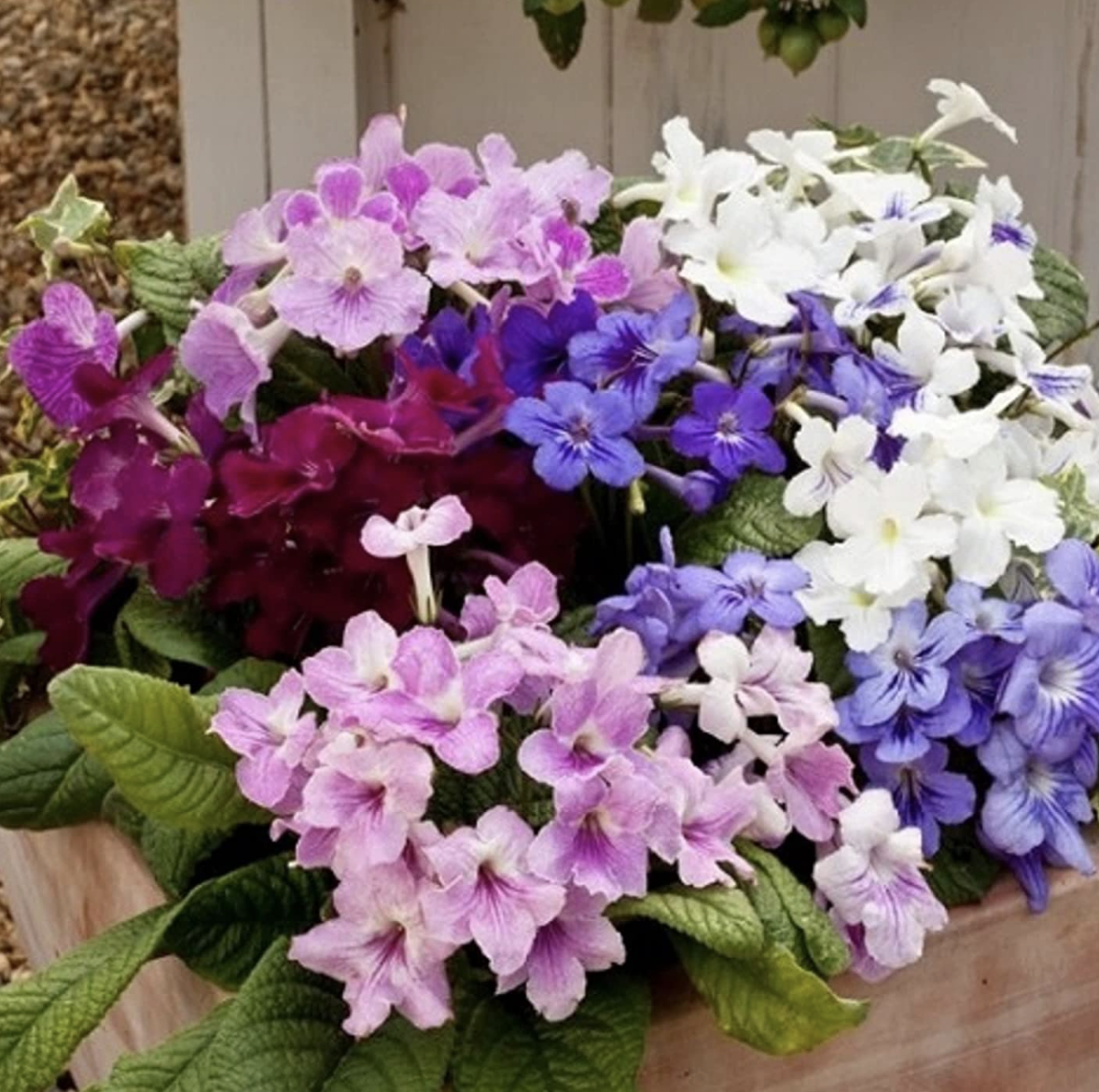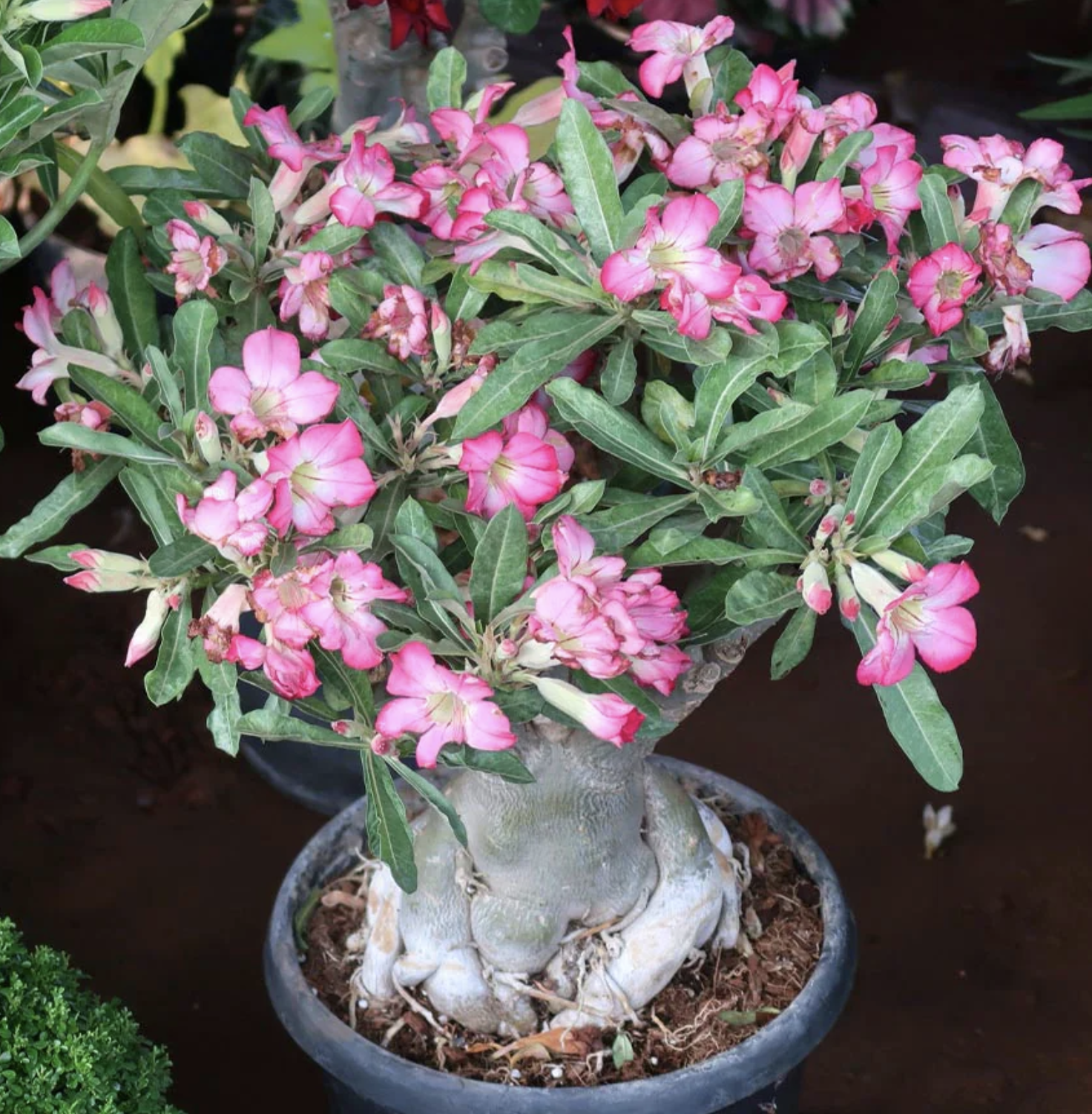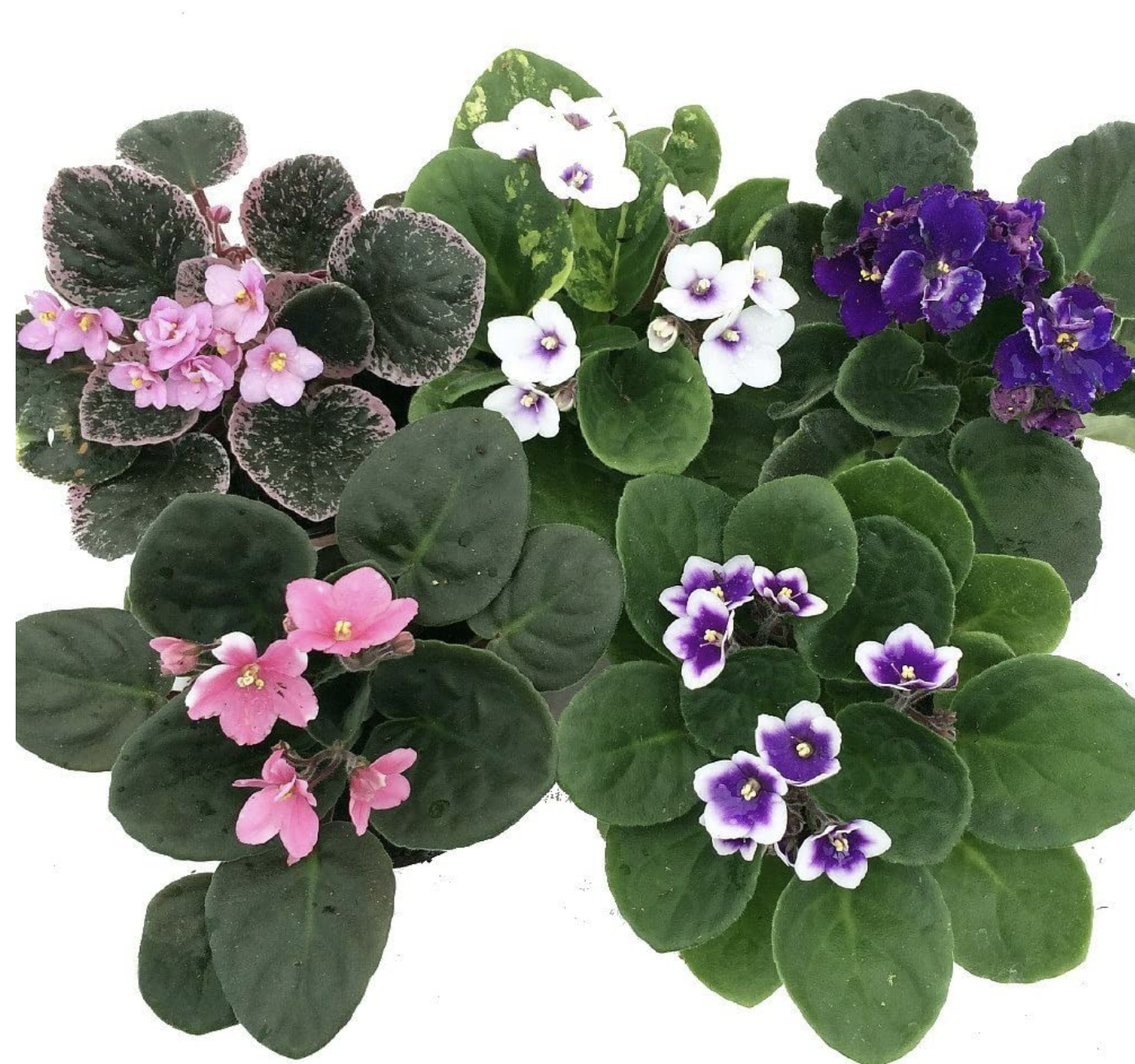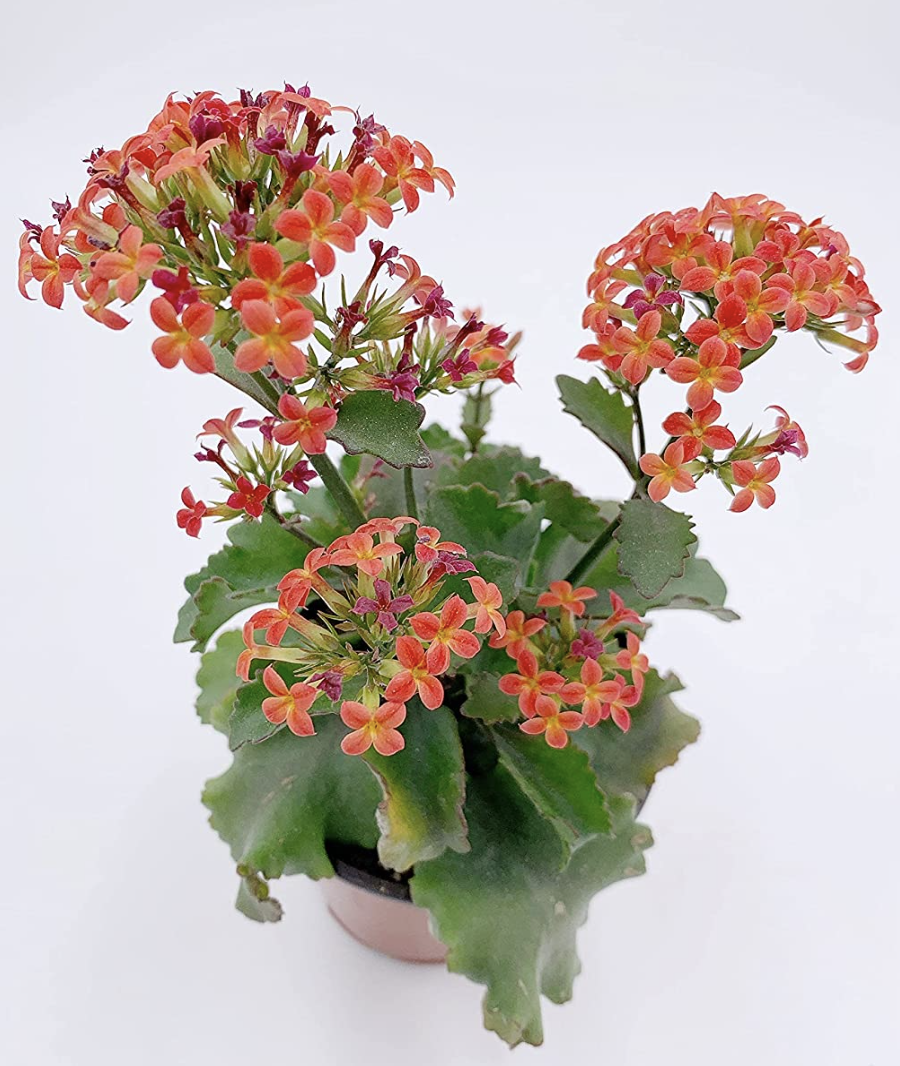Fill your home with instant color! 5 flowers you can easily grow on a windowsill that bloom and bloom
These light loving flowers you can easily grow on a windowsill will thrive in sunny conditions, creating colorful blooms en masse, according to our expert
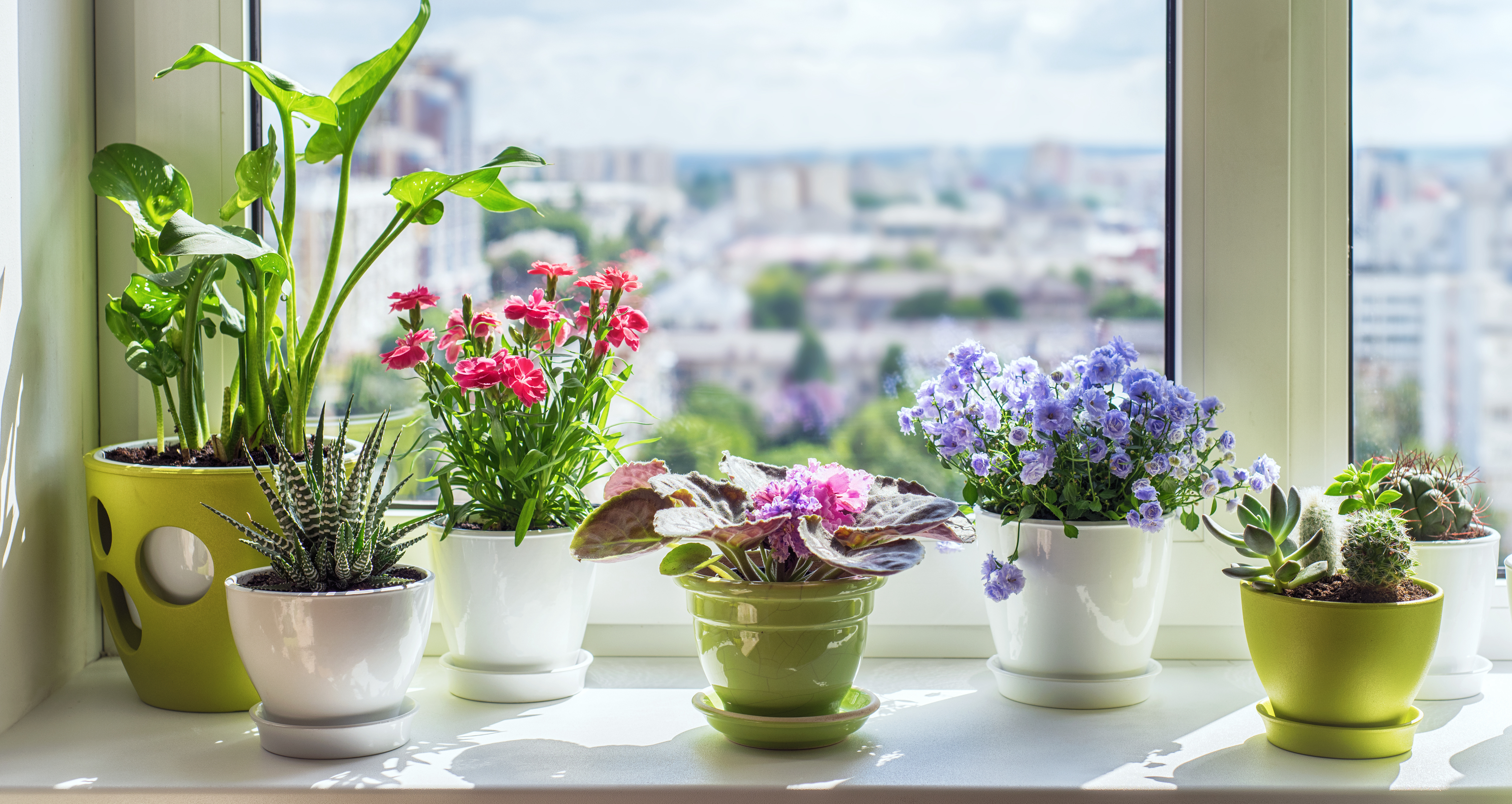
Outdoor flower gardens are a beautiful thing that bring color and cheer to those who cultivate them. Yet growing flowers isn't limited to the backyard or balcony. There are a number of flowers you can easily grow on a windowsill indoors.
Introducing flowering plants to your indoor garden will bring charm and color to your interior. It's also relatively easy with this advice from Lisa Eldred Steinkopf, The Houseplant Guru and author of Bloom.
'There are plants that will bloom in your home without too much fuss,' says Lisa. 'First it is necessary to decide which exposure your windows face: north, south, east or west. Remember to check outside for objects that will block the light, such as trees, shrubs or the neighbour's home.
'Most flowering plants are going to need medium to high light conditions to flower. As a result, many plants will not flower in a true northern exposure. The right amount of light depends on the plant you want to grow and what environment is best for them to stimulate flowering.
'Flowering plants are mostly purchased when they are in bloom,' continues Lisa. 'When the flowers are spent, they are cut off and the plant diligently cared for in hopes it will send out flowers again for future enjoyment.
'If this doesn't happen, in most cases, it's because they are not receiving enough light to trigger them to bloom.
Lisa Eldred Steinkopf is The Houseplant Guru, who features all things houseplants on her blog, thehouseplantguru.com. She is the author of Bloom, Houseplants and Grow in the Dark and has written for HGTVgardens.com, Real Simple magazine, Michigan Gardener Magazine, the houseplant section of Allan Armitage’s Greatest Perennials and Annuals app, and Michigan Gardening Magazine, where she writes a monthly column. She worked for more than a decade at Steinkopf Nursery as the Annuals and Houseplants Manager. She harbors well over 1,000 houseplants in her home.
5 flowers you can easily grow on a windowsill
'A good rule of thumb is to turn your plants one-quarter turn each time you water them,' continues Lisa. 'So all sides get equal light exposure and the plant grows symmetrically.'
1. Begonias
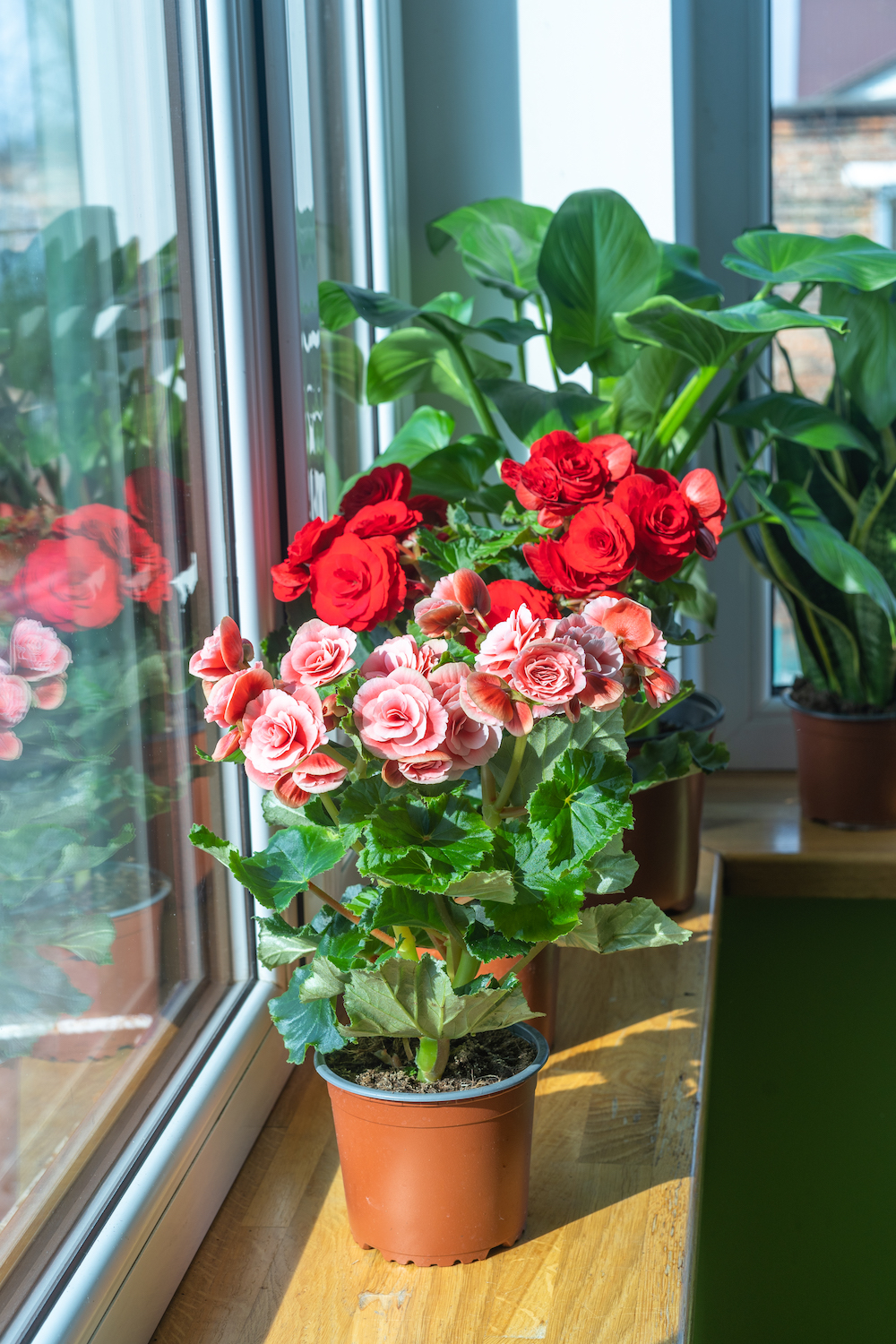
Many Begonias such as the Rex and Angel Wing are grown for their beautiful foliage. For this reason, they are one of the best indoor plants to add color and for how to turn your windowsill into an indoor garden. However, their blooms are sparse. Far better for flowers are the cane and rhizomatous begonia varieties.
'The best part is that begonias will send their flowers out during the short days of winter, when not much else indoors is in bloom,' says Lisa, The Houseplant Guru.
'The cane begonias can take some direct sun, even from a southern exposure. An east exposure with the soft, morning light for the rhizomatous varieties and a west exposure for the cane types will ensure blooms on both types of plant.
'Being perplexed by the watering needs of begonias is the number reason for failure with these plants. Water the plant thoroughly until water runs out of the drainage hole. Allow them to become dry one or two inches down before watering again.
'They have shallow root systems so plant them in shallow containers, such as azalea pots. Clay is desirable as these pots allow moisture to escape through the walls.'
2. Cape primrose (Streptocarpus)
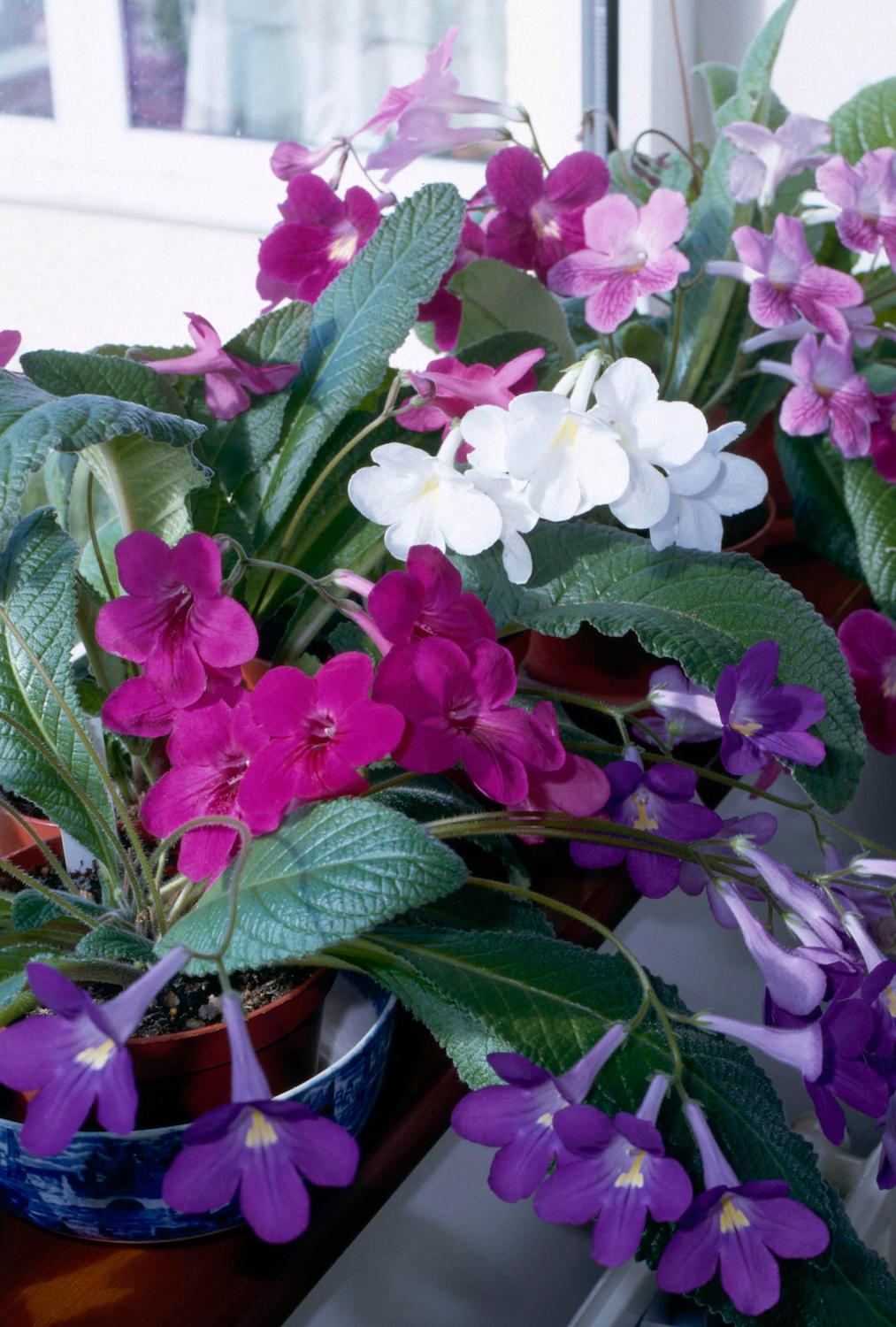
This pretty cousin of the African violet can be grown indoors on a windowsill or outside in a flower bed or container. Its colors range from pink and purple to yellow and white, with combinations in between. Look out also for the hybrids, which tend to have larger flowers.
'Give the cape primrose a bright, light location, but not full sun, which could burn its leaves,' says Lisa. 'An east or west windowsill would be perfect for bringing this plant into bloom.
'Purchase a bag of potting mix [like this potting mix from Amazon] and add perlite or vermiculite for a better aerated mix. Water your plant well and let it dry out, almost to the point of wilting, before watering it again. These plants do not like wet feet.
Simple to grow, the're one of the easiest low maintenance plants for indoor gardening. However, Lisa advises they do need a bit of primping. 'Their fuzzy leaves can get dusty and are a magnet for pet hair, so use a soft paint brush or make up brush to keep them clean.'
3. Desert rose (Adenium obesum)
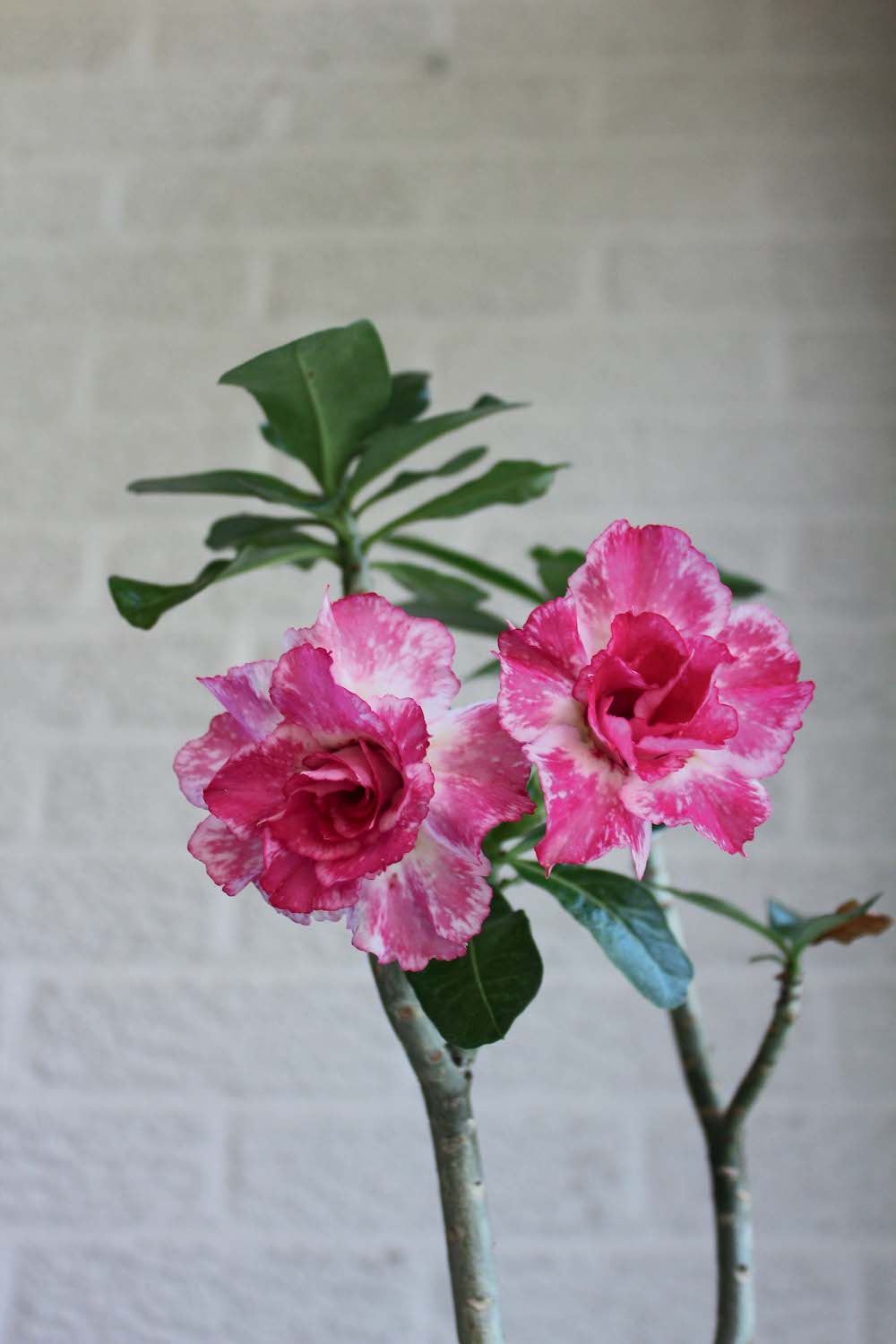
Also known as mock Azalea, the desert rose is accustomed to drought in its natural habitat in Africa. So it likes to be planted in a fast-draining potting medium, in a pot with ample drainage, preferably clay or terracotta.
Although the plant stems can look quite sparse, once it blooms, that sparseness disappears beneath a profusion of trumpet-shaped flowers in shades of red, white, pink or burgundy. Its pattern makes this an indoor plant that makes a room look more expensive. Often sold as a bonsai, the flowers burst forth in spring and summer in clusters at the top of the stems.
'Give this plant as much light as possible, as it would prefer to be living in the desert, in the full blazing sun,' says Lisa. 'Place it in an unobstructed south or west window. Lower light may be acceptable but it won't flower as prolifically and its stems may become elongated and soft.
'In the summer it can be watered liberally. In the winter when it's resting, give it minimal water, if any at all. Be aware that this plant is extremely poisonous, so it should be kept away from children and pets.'
4. African violet (Streptocarpus Saintpaulia)
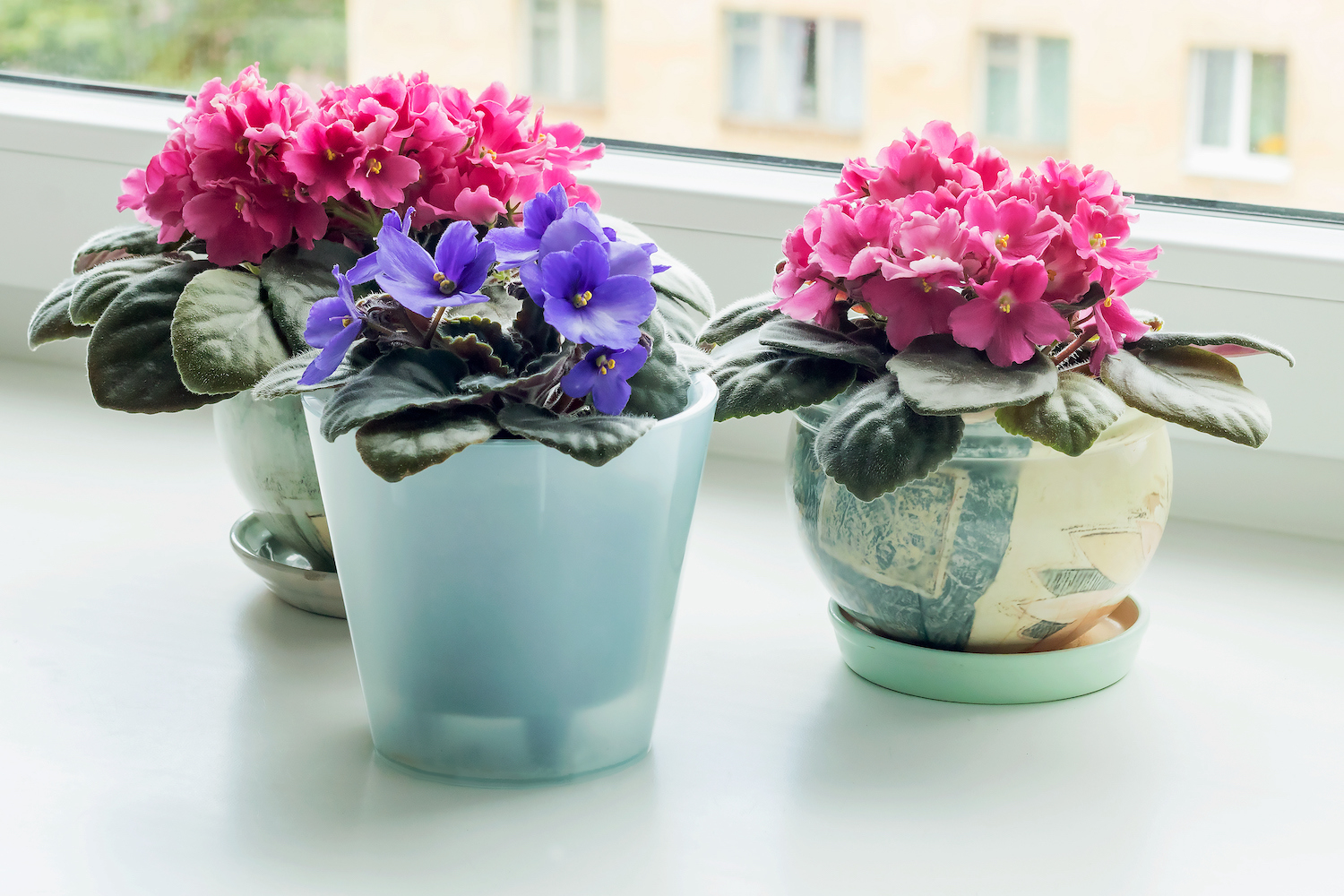
Once available in just purple, pink and white, the African violet can now be found in an endless variety of colors and combinations, thanks to hybridization. There are also cultivars with single, double, striped, splotched and star-shaped flowers. This has helped it shed its 'grandma' image and the African violet has become popular with younger growers.
'The best part about them is that they're easy to bring into bloom and you can have flowers on your windowsill all year long,' says Lisa. 'African violets prefer an eastern or morning light exposure. They naturally grow in the mountains of east Africa in dappled shade. So they should not be placed in full sun, during the brightest part of the day, as the leaves could burn.
'Bottom watering from the saucer, is a preferred way to water these plants, avoiding water on their leaves. It's a common belief that you shouldn't get their leaves wet at all.
'However, all plants grow outside somewhere in the world. Their life-sustaining water source is rain, which wets their leaves. The problem occurs when the water used is cold, which can mar the leaf and shock the root system.
'I occasionally take my African violets to the sink to rinse off their fuzzy leaves. Every plant enjoys a shower to get the dust off its leaves. Be mindful if you do water your African violets in this way to always carefully blot the water out of the center, so the plant doesn't develop crown rot.'
5. Flaming Katy (Kalanchoe)
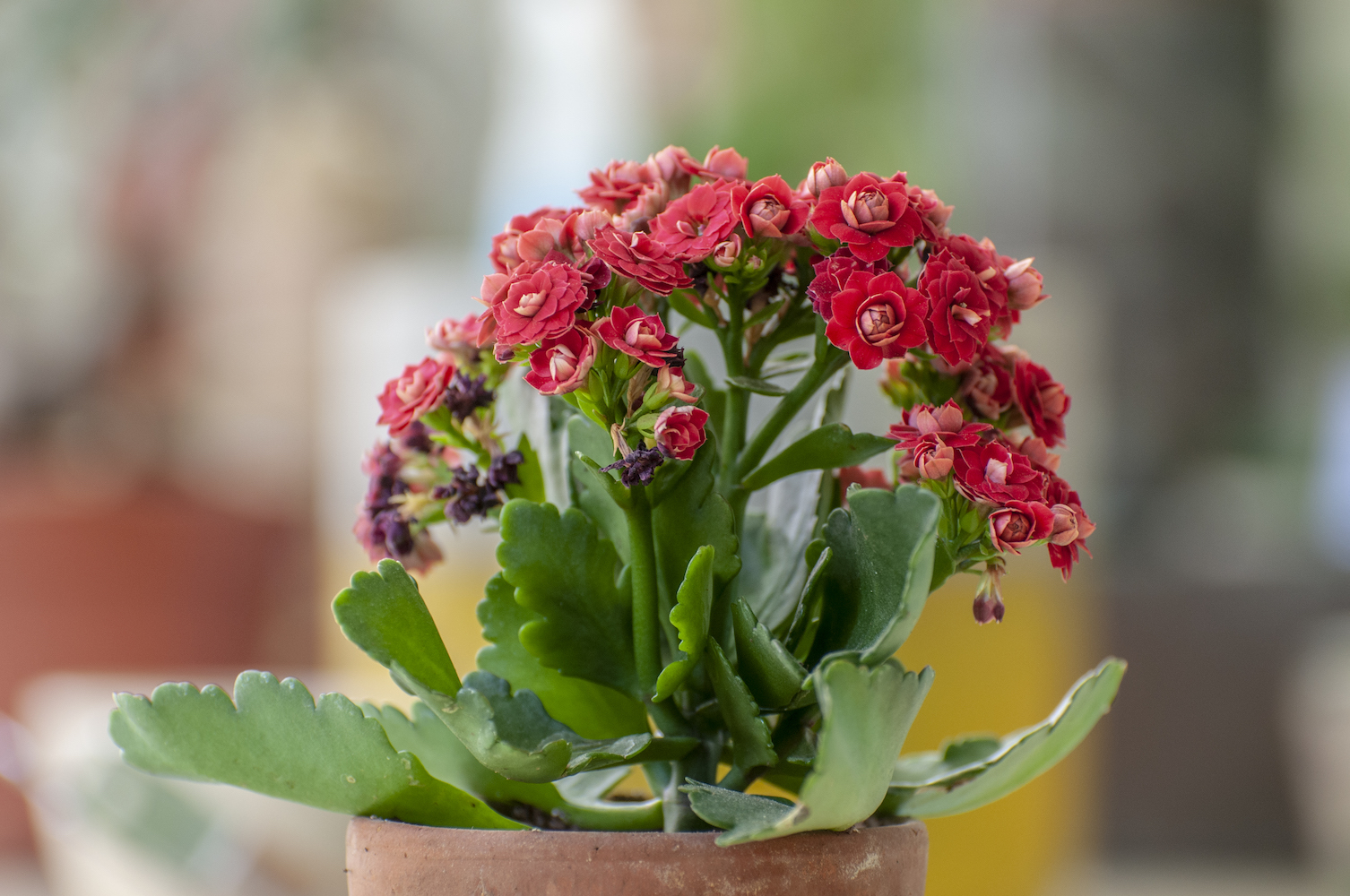
Bursting with bright, vibrant color, Flaming Katy will add a joyful floral display to your windowsill. Often bought during the holiday season, this plant will flower again if you give it the love it needs.
'For maximum blooms, this plant would prefer to be in full sun,' says Lisa. 'An unimpeded south or west window would be best. It likes to be thoroughly watered then allowed to dry out almost completely.
'If the leaves become wrinkled it has been left to become too dry. However, the number one killer of this plant is root rot, from allowing the potting medium to remain wet for too long. Water it thoroughly but empty any water left in the saucer after 30 minutes.
'As the fall days become shorter and the nights longer, this change should stimulate the plant to bloom, but you could prompt this by covering the plant for fourteen hours a day for a few weeks to prompt the flowering process. If it becomes lanky and tall, cut it back to keep a more bushy form.
'Many people don't realise Kalanchoe is a succulent,' continues Lisa. 'Under all those flowers are dark green, fleshy, scallop-edged leaves. Even if the plant never flowers again, it is a beautiful succulent foliage plant.'
Be The First To Know
The Livingetc newsletters are your inside source for what’s shaping interiors now - and what’s next. Discover trend forecasts, smart style ideas, and curated shopping inspiration that brings design to life. Subscribe today and stay ahead of the curve.
Jacky Parker is a London-based freelance journalist and content creator, specialising in interiors, travel and food. From buying guides and real home case studies to shopping and news pages, she produces a wide range of features for national magazines and SEO content for websites
A long-time contributor to Livingetc, as a member of the team, she regularly reports on the latest trends, speaking to experts and discovering the latest tips. Jacky has also written for other publications such as Homes and Gardens, Ideal Home, Red, Grand Designs, Sunday Times Style and AD, Country Homes and Interiors and ELLE Decoration.
-
 Burl Wood Decor Is 2025’s Most Coveted Comeback — Here’s How to Get the Storied Swirls for Less
Burl Wood Decor Is 2025’s Most Coveted Comeback — Here’s How to Get the Storied Swirls for LessIrregularity is the ultimate luxury, but you don’t need an antiques dealer to find it
By Julia Demer Published
-
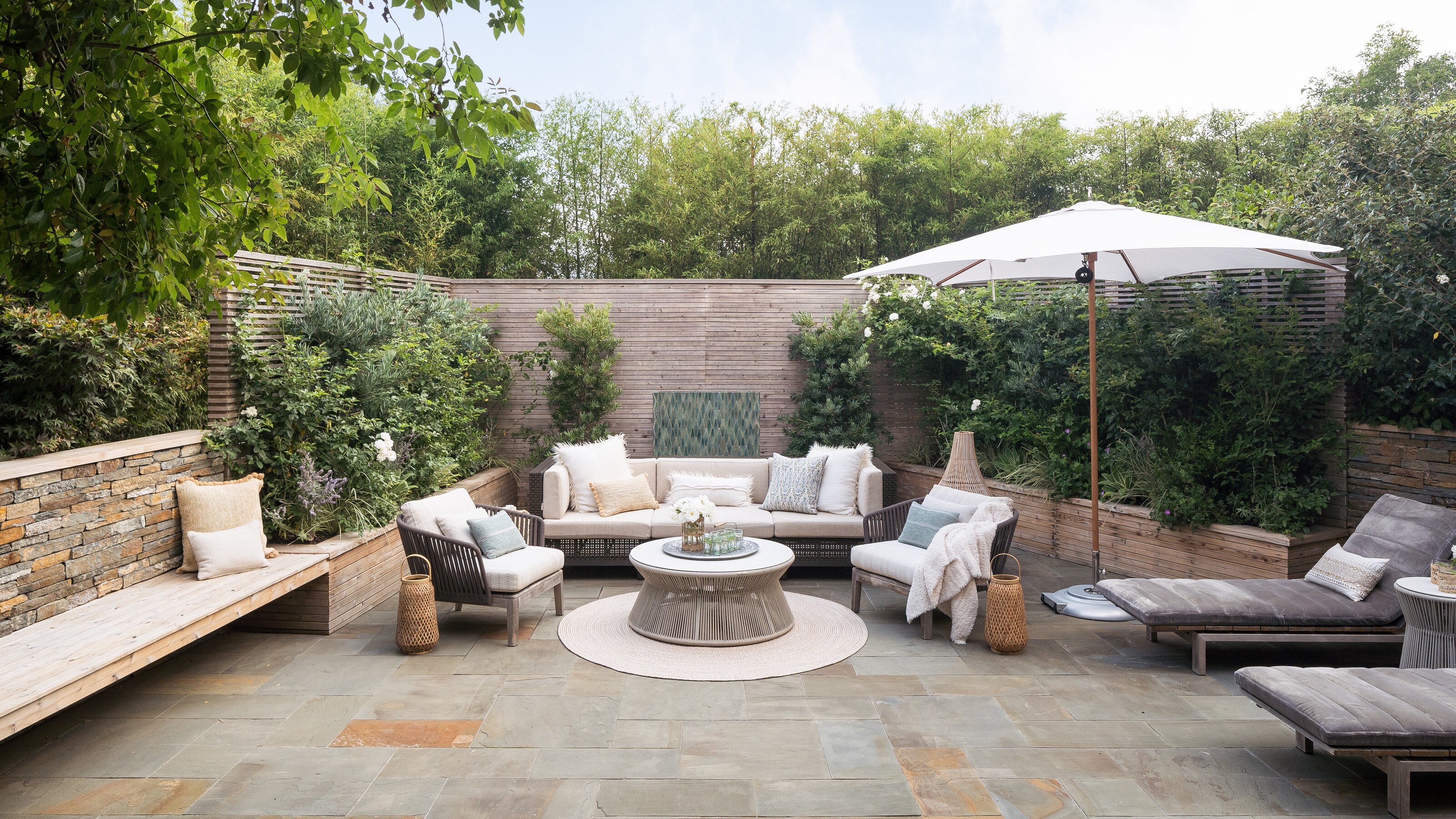 5 Garden Features That Instantly Add Value to Your Home — While Making Your Outdoor Space More Practical, too
5 Garden Features That Instantly Add Value to Your Home — While Making Your Outdoor Space More Practical, tooGet to know all the expert tips and tricks for making your backyard a standout selling point for your home.
By Maya Glantz Published
